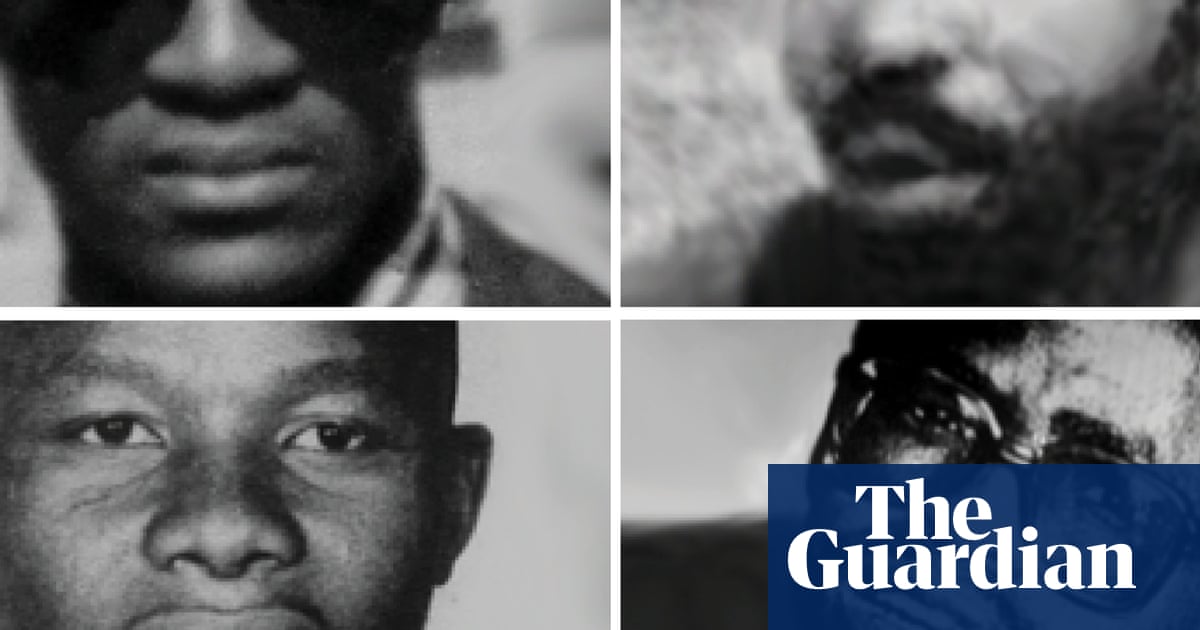An inquest has opened intoone of the most notorious killingsof South Africa’s apartheid era, with a former general denying he ordered the deaths of four men who became known as the Cradock Four.
Fort Calata, Matthew Goniwe, Sicelo Mhlauli and Sparrow Mkonto were stopped at a roadblock on 27 June 1985 by security officers and beaten, strangled with telephone wire, stabbed and shot to death.
Inquests into the killings of the four activists were held in 1987 and 1993, before South Africa’s first democratic elections in 1994. In 1999, the country’s Truth and Reconciliation Commission refused six security officers amnesty for their role in the killings. They were never prosecuted and have all since died.
Howard Varney, a lawyer for relatives of the Cradock Four, said in his opening statement to the inquest, at the high court in the city of Gqeberha: “These were four young men who had so much to offer SouthAfrica. The searing pain of their absence persists with the families to this day.”
At one of the previous inquests, it was revealed that Joffel van der Westhuizen, the former military commander of what was then the Eastern Province, sent a message to the apartheid regime’s state security council requesting permission to “remove permanently from society as a matter of urgency” the “agitators”. Another general who received the messagearguedthat this meant detaining the men, not killing them.
In an opening statement, Van der Westhuizen’s lawyer said “he denies ever authorising or ordering the killing of the deceased”.
The lawyer said the former general was “not in a very healthy condition” and had so far not been able to get the South African military to pay his legal costs. The lawyer argued that witnesses, who include nine family members of the Cradock Four, could not give evidence that implicated Van der Westhuizen unless he had funded legal representation.
Judge Thami Beshe ruled that in the first part of the inquest, which will last until 12 June, witnesses could refer to Van der Westhuizen and three former police officers who are also still alive, as long as they only used information in the public domain.
Calata’s son, Lukhanyo Calata, said: “Today is emotional. Good emotion. We’ve waited so many years to finally get to this point, where a court in democratic South Africa finally gets to hear the Cradock Four case.”
Calata, who is a journalist, noted that some Afrikaners, the white minority that ruled South Africa during apartheid and the same ethnicity as his father’s killers, were promoting the false claim that there was a “genocide” against them, a claim amplified by the US president, Donald Trump.
He added: “What we are hoping for now is to correct the historic record.”
Sign up toThe Long Wave
Nesrine Malik and Jason Okundaye deliver your weekly dose of Black life and culture from around the world
after newsletter promotion
Nombuyiselo Mhlauli, the 73-year-old widow of Sicelo Mhlauli, said: “We are just hoping that we will reach that stage where we process our grief. Because, since all these years, we are living in our grief.”
The relatives of the Cradock Four are among 25 families who in Januarysued the governmentfor not prosecuting apartheid-era killers. In April, the country’s president, Cyril Ramaphosa, set up an inquiry into whether past democratic governments interfered with investigations and prosecutions. However, the families havecriticisedthe inquiry, as it has only fact-finding powers and cannot award damages.
The inquest continues on Tuesday with a visit to the home of Goniwe in the town of Cradock, now called Nxuba, and the site between there and Gqeberha, formerly known as Port Elizabeth, where the men were abducted.
